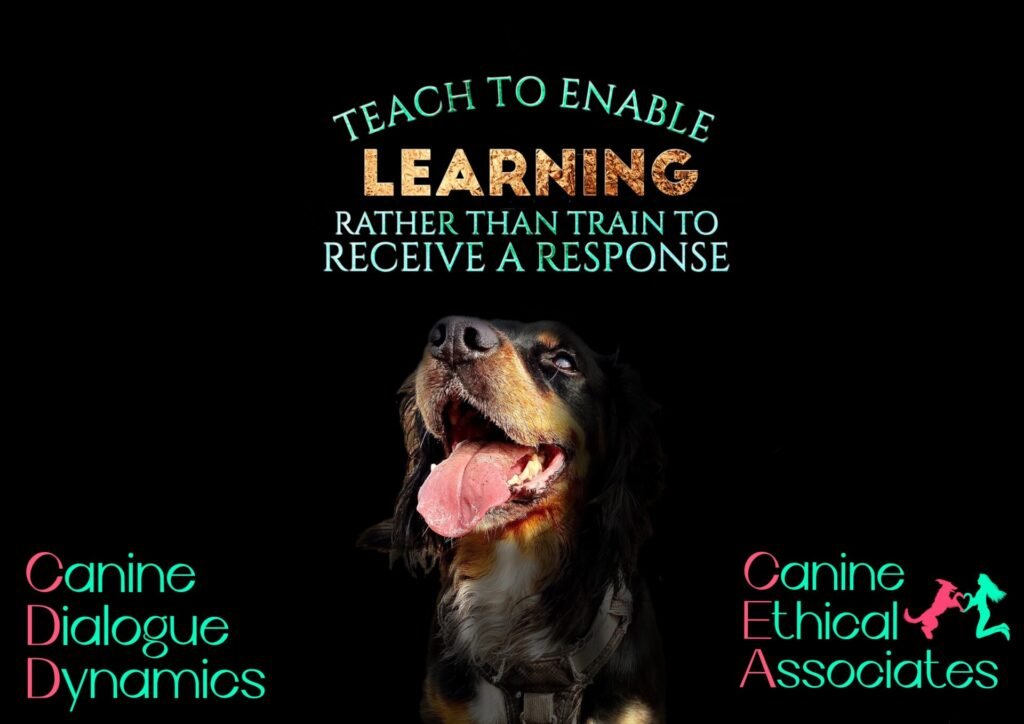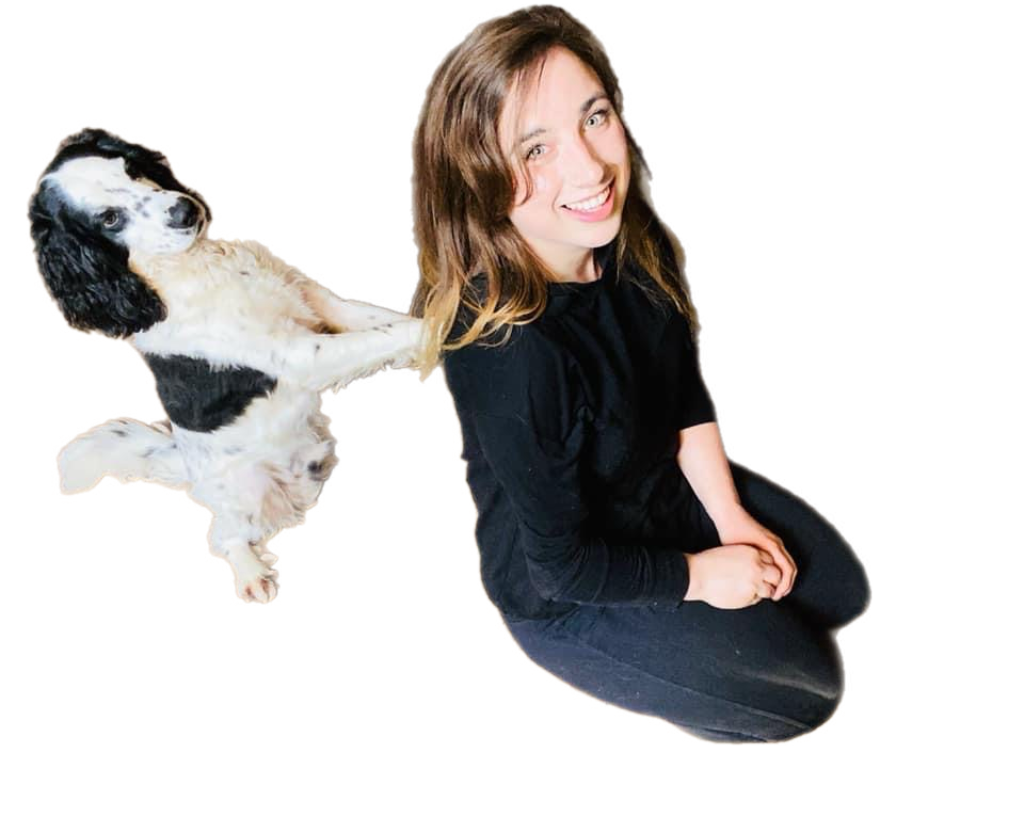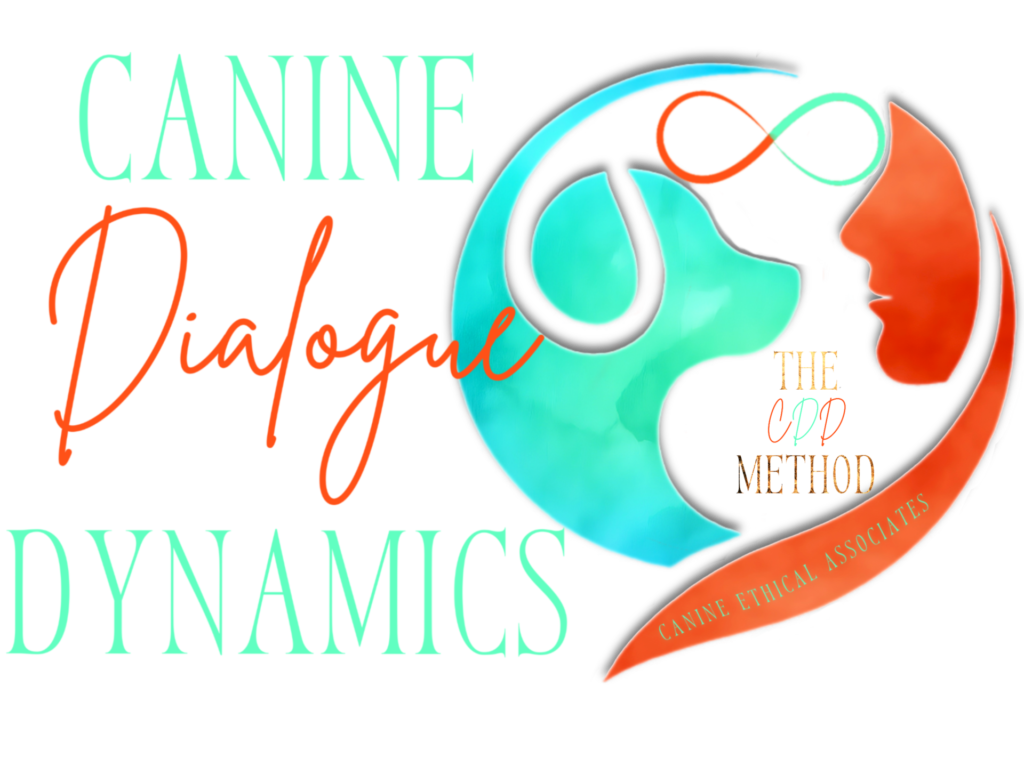It’s all too easy to slip into the habit of black-and-white thinking, especially when we’re comfortable with what we know. Sticking to the usual ways doesn’t necessarily mean we’re on the best track. This is especially relevant in dog training, a field that has increasingly become divided into strongly opposed viewpoints.
These divisions often present us with a false choice: right or wrong, good or bad. Or, at times, a blend of both. Yet, what if this way of thinking is inadvertently constraining us? What if it’s stifling our creativity, our desire to explore, and ultimately, our dogs’ potential?
Stepping back from this polarised framework opens up a world of possibilities!
The debate in dog training often circles around the use of force, corrections, and traditional methods versus a rewards-based approach. Your ethical stance and how you perceive a dog’s understanding of the world significantly influence your preference here. However, this is a narrow lens through which to view the entire spectrum of dog training.
When we use harsh methods, we undoubtedly limit our dogs’ autonomy, self-expression, and capacity for independent thought. Conversely, an over-reliance on reward-based training can, albeit less severely, impose similar limitations. It’s not to say reward-based training isn’t a more humane and effective approach compared to using force or intimidation. But it’s not without its pitfalls, particularly when not aligned with current ethical standards.
If we’re to revolutionise the dog training industry and safeguard others from misguided advice, we must confront our own biases. Embracing the possibility of being wrong is a part of our collective journey in understanding dogs better. We don’t have all the answers yet; dogs continue to be a subject of research and study in various disciplines.
As our knowledge base expands, so too must our understanding, which may necessitate re-evaluating some of our long-held beliefs. And that’s an exhilarating prospect! We stand on the cusp of a monumental shift that could redefine dog training, dog parenting, and the entire industry. This isn’t a moment for intimidation but for anticipation and excitement.
Stepping outside our comfort zones to question what we know, and what remains unexplored about dogs, is not just enlightening – it’s necessary. When we cling solely to one way of thinking, particularly in an area as dynamic as dog understanding, we risk limiting our perspective. While science is an invaluable tool in advancing our knowledge, it’s not the sole arbiter of truth about dogs.
Broadening Our Understanding Beyond Science
- Exploring Beyond Current Science: Science, though essential, is just one piece of the puzzle. It sometimes lags behind what many dog enthusiasts and professionals have known through experience and observation.
- Recognising Science’s Limitations: Not all aspects of dog behaviour and psychology have been thoroughly researched. This doesn’t invalidate truths and knowledge gained through collective experience and observation.
- Encouraging a Holistic Approach
- Beyond Polarised Views: Let’s not allow polarised viewpoints to dictate our beliefs. Instead, use scientific research as a foundation, but stay open to ideas and insights that extend beyond current scientific knowledge.
- Challenging Conventional Thinking: Embrace the idea that high ethics, understanding emotions, individuality, and cognitive thinking in dogs are just as crucial as scientific evidence in improving their lives.
Introducing Canine Dialogue Dynamics (CDD)

- Ethical and Collaborative: CDD is an ethically grounded method that emphasises dialogue, education, and collaboration with dogs. It’s about understanding their feelings, emotions, and individuality.
- Versatile and Integrative: This method can stand alone or complement reward-based training. It encourages independent thinking in dogs, fostering their ability to make choices and express their individuality.
- A Different Approach: It allows dogs to be themselves within the bounds of safety and social responsibility. The focus is on nurturing their ability to self-regulate and navigate the world intelligently.
- It has been developed through the understanding of current scientific literature and research alongside more versatile approaches that foster broader perspectives, understanding and beliefs.
Summary of CDD
To encapsulate the essence of CDD: It’s about embracing methods that inspire dogs to think independently and make choices, rather than responding robotically to commands or rewards. Treats are given for pleasure, not as a tool for compliance. This approach fosters each dog’s unique preferences within the realms of safety and societal norms. It avoids unnecessary strictness, allowing dogs the freedom to learn, grow, and self-regulate.
Join Our Community
To dive deeper into the world of Canine Dialogue Dynamics and explore a more ethical, understanding, and holistic approach to living and learning with dogs, we invite you to join our free groups.
- Discover More: Join our community and be part of a movement that’s reshaping the way we interact and teach our dogs. It’s a journey towards more mindful, respectful, and enriching experiences with our beloved dogs.
- Our CDD Group
- Our Reactivity Group





